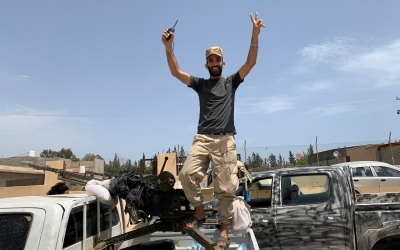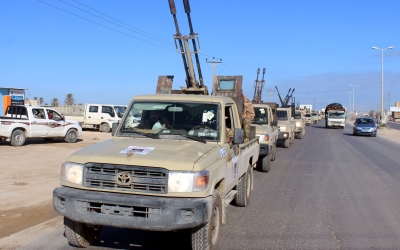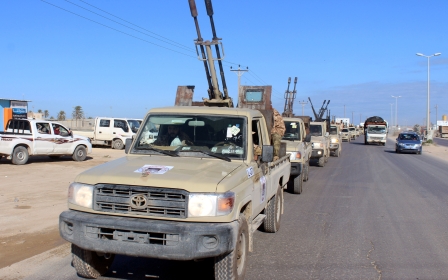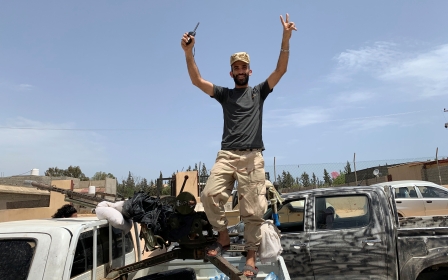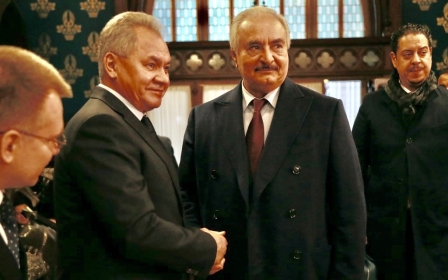Libya's GNA says offensive launched for Gaddafi's hometown of Sirte
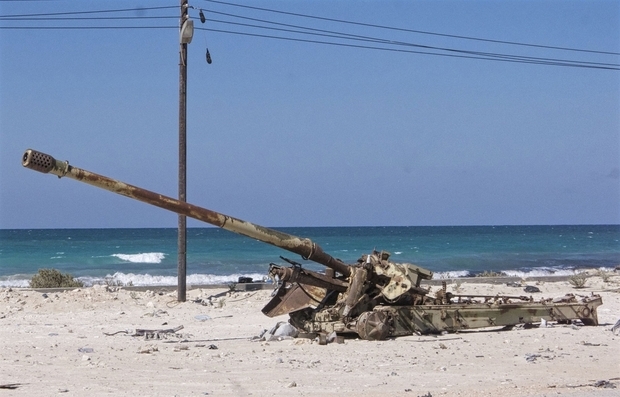
Forces loyal to Libya's UN-recognised government said they launched an offensive on Saturday for former leader Muammar Gaddafi's hometown of Sirte, as rival eastern commander Khalifa Haftar backed a ceasefire following a string of military setbacks.
Government of National Accord (GNA) forces have repulsed a 14-month offensive against the capital Tripoli by Haftar and are now poised to drive on eastwards taking advantage of stepped up military support from Turkey.
"The air force has carried out five strikes in the outskirts of Sirte," GNA spokesman Mohamad Gnounou said.
"Orders have been given to our forces to begin their advance and to systematically attack all rebel positions."
Sirte is the last major town before the traditional boundary between Libya's western Tripolitania and eastern Cyrenaica regions.
The town was taken by Haftar's forces virtually without a fight in January after one of Libya's myriad local militias switched sides.
Beyond Sirte lies the prize of Libya's main oil export ports, Haftar's most important strategic asset.
Located about 450km east of Tripoli, the town was where Gaddafi put up his last stand against Nato-backed rebel forces in 2011.
While the GNA is backed by Turkey and its ally Qatar, Haftar is supported by Russia and the United Arab Emirates (UAE) as well as Egypt.
In April, UN experts said hundreds of mercenaries from Russian paramilitary organisation the Wagner Group were fighting for him.
But last month, as Haftar's losses mounted, the GNA said Wagner Group fighters had withdrawn from combat zones south of the capital.
'Turkish invaders'
Haftar's forces, which have suffered a series of defeats in recent weeks, have claimed their withdrawals were a response to mounting international pressure for a lasting ceasefire, AFP reported.
"Heeding appeals from the major powers and the United Nations for a ceasefire... we pulled back 60km from the Greater Tripoli city limits," Haftar's spokesman, Ahmad al-Mesmari said.
"We have asked friendly countries and the United Nations for guarantees... that the other side and the Turkish invaders refrain from attacking us," he told a news conference late on Friday.
Egyptian President Abdel Fattah el-Sisi, one of Haftar's key foreign supporters, said after talks with the general and other eastern leaders on Saturday that they had signed up to a declaration calling for a ceasefire from 6am (04:00 GMT) on Monday.
Sisi, who was also accompanied in Cairo by eastern Libyan parliament head Aguila Saleh, said the plan included a call for negotiations in Geneva, then the election of a leadership council, the disbanding of militias and the exit of all foreign fighters from Libya.
In brief comments, Haftar said he hoped Sisi could make "urgent and effective efforts to compel Turkey to completely stop the transfer of weapons and mercenaries to Libya".
The UAE was quick to state its support for Saturday's declaration.
But Khaled al-Meshri, head of the GNA-aligned legislative assembly, said Libyans had no need for new initiatives and rejected Haftar's attempt to return to negotiations after military defeat, according to Al Jazeera.
The United Nations' Libya mission had said on Tuesday that after a three-month suspension, the warring parties had agreed to resume ceasefire talks.
Libya has endured years of violence since the 2011 uprising that toppled and killed Gaddafi, with rival administrations and scores of militias battling for power.
The UN has urged outside powers to respect a deal reached at a January conference in Berlin, ending foreign meddling and upholding a much-violated arms embargo.
Middle East Eye propose une couverture et une analyse indépendantes et incomparables du Moyen-Orient, de l’Afrique du Nord et d’autres régions du monde. Pour en savoir plus sur la reprise de ce contenu et les frais qui s’appliquent, veuillez remplir ce formulaire [en anglais]. Pour en savoir plus sur MEE, cliquez ici [en anglais].


